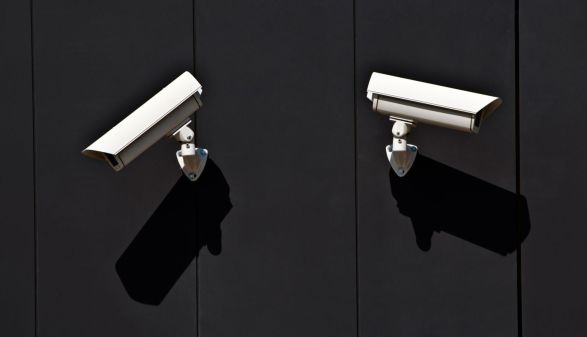N.C. lawmakers advance police video footage disclosure bill despite plenty of pushback

Police, lawmakers and open government advocates in North Carolina agree the state needs new rules governing the release of videos collected by law enforcement officers, but there’s fierce debate over how to approach overhauling the laws.
State Rep. John Faircloth and other House lawmakers are pushing a proposal declaring that footage captured by body-worn cameras, dashboard cameras or other surveillance devices isn’t a public record subject to disclosure under open government laws. The bill — which just passed the House’s Judiciary Committee last week — would let police release videos to anyone filmed by these cameras but would require anyone else to get a court order to access the footage.
The bill’s supporters believe it provides reasonable mechanisms for public access to these videos, while moving the footage out of a legal gray area, yet opponents charge that the legislation is too restrictive and favors law enforcement agencies.
“The news media would prefer to be able to go down to the station and say, ‘Give me the reports and the videos for the last couple weeks’ and sit down and go through it all,” Faircloth told StateScoop. “Of course, it can’t work that way, because we need the criminal justice system to function and work as it’s supposed to. And its first job is to keep people safe, and to protect one from harm, and that’s what I’ve tried to do with this bill.”
Faircloth, a 31-year law enforcement veteran, believes the bill is necessary to fix the state’s current system for releasing video. Lawyers in some municipalities have argued that body camera recordings could be considered “personnel records,” which receive sweeping privacy protections and can only be disclosed with the permission of the officer who used the camera, making it difficult to compel the release of the footage.
“It’s not working right now, and it’s putting chiefs and sheriffs in very uncomfortable situations,” Faircloth said.
Accordingly, Faircloth thinks the bill moves the state in the right direction, since it lays out a process for people captured on police video to request the footage, which previously didn’t exist. Similarly, he said lawmakers have been able to craft a “quick, short court process,” where a superior court judge reviews arguments by anyone hoping to request camera footage to see if the video is in the public interest, or if it could end up violating someone’s privacy.
“There are many things police record that are very routine, but things people want to keep private in their lives,” Faircloth said.
But Jonathan Jones, director of the North Carolina Open Government Coalition, believes that sending requesters to court if they want access to the footage is inherently restrictive.
“To me, this is more of a secrecy bill than it is a transparency bill, though it’s being portrayed as a transparency bill, because it creates a process by which, functionally, very little of this police video will ever see the light of day,” Jones said. “The reality is, very few people will have the wherewithal, ability and money to go to court and actually ask for a video to be released.”
Susanna Birdsong, policy counsel for the American Civil Liberties Union of North Carolina, agrees, charging that “there’s no guarantee of a quick and relatively inexpensive court process.”
“Quite frankly, a lot of communities that would most benefit from access to body camera recordings that depict incidents in the public interest aren’t really going to be able to access those recordings if you have to go to court to do so,” Birdsong said.
[Read more: Illinois weighs bill to speed access to police video footage]
Yet Fred Baggett, legislative counsel for the North Carolina Association of Chiefs of Police, pushes back against that depiction. He noted that if the state followed the example of other legislatures and classified the videos as public records, a complex legal battle could ensue anyway if an agency tries to withhold certain pieces of footage.
“This is to take the discretion about release out of the hands of the law enforcement agency,” Baggett said. “This involves some potential cost or delay, but we hope it’s small and it puts the discretion where we think it ought to be, with a superior court judge.”
But Birdsong argues that police still have broad powers to withhold videos from people who are captured on the cameras, since the bill contains “no guarantee” of disclosure and lets police keep the footage confidential for a variety of reasons.
Faircloth thinks that’s an appropriate provision to help protect the integrity of investigations, and Baggett believes many agencies would be enthusiastic about releasing videos of all kinds to show their side of the story.
“There seems to be a presumption that law enforcement wants to keep all video secret, but that’s not true,” Baggett said. “Law enforcement is the group that wants cameras and has invested in and committed to cameras in their agencies for transparency.”
But Jones sees that sort of thinking about the videos as quite self-serving.
“When the video benefits the police, they want to release it, but when it doesn’t, they want to be able to withhold it,” Jones said. “That’s not how the law should work, that’s counter to transparency, counter to accountability.”
Despite that fierce opposition, Faircloth believes his bill will advance out of the House’s Finance Committee in the coming days and earn a floor vote, where it could pass.
“The votes are there,” Faircloth said.
Jones begrudgingly agreed, noting that “law enforcement has a strong influence on our Legislature right now,” and he could see the measure at least going to the Senate.
But as lawmakers weigh the legislation, Birdsong hopes they take another approach to the process entirely.
“If the law enforcement agency says, ‘No we don’t want to release the footage for reasons X, Y, and Z,’ the burden should be on them to go to court and seek an order restraining public access,” Birdsong said.
Contact the reporter at alex.koma@statescoop.com, and follow him on Twitter @AlexKomaSNG.





